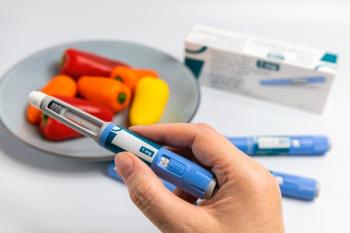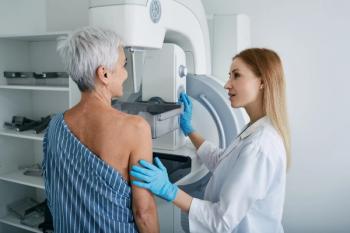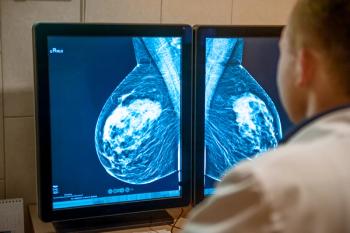
Well Woman
Latest News
Latest Videos

CME Content
More News

A new study shows that a self-collected cervical cancer screening device is highly accurate, easy to use, and preferred over clinician collection.

In this interview at the 2025 ACOG ACSM, Johanna Finkle, MD, urged clinicians to tailor weight loss care based on BMI, contraception use, and medication risks using patient-centered counseling.

A new study suggests long-term use of estrogen-based hormone therapy may offer cardiovascular benefits for postmenopausal women.

The BRITE-MOM study at UCSF uses wearable ECGs to detect arrhythmias in pregnant women, aiming to improve early diagnosis and maternal cardiac outcomes.

Review some of the top stories from the Contemporary OB/GYN website over the last week, and catch up on anything you may have missed.

The potential shutdown of the 30-year Women’s Health Initiative threatens critical research on aging, disease prevention, and postmenopausal women’s health.

New research reveals a significant link between urinary incontinence and increased cardiovascular disease risk, even without reduced physical activity.

A new University of Sydney study reveals a strong connection between poor oral health and higher rates of migraines, body pain, and abdominal pain in women.

A new study found that older women experiencing persistent or changing social isolation are at higher risk of unhealthy eating habits.

A new survey highlights gender differences in knowledge and attitudes toward GLP-1/GIP receptor agonists.

A new study found that routine mammography significantly reduces late-stage diagnoses and mortality in women aged 70 years and older.

A new study finds that Black women living in economically disadvantaged neighborhoods face significantly higher breast cancer mortality rates.

Women with prior pre-eclampsia develop cardiovascular (CV) risk factors nearly a decade earlier, prompting calls for earlier and regular CV screening.

A new study from Intermountain Health reveals that while disparities in heart disease outcomes between men and women are shrinking, women still face unique risks and challenges in diagnosis and treatment.

Review some of the top stories from the Contemporary OB/GYN website over the last week, and catch up on anything you may have missed.

A new study found that diet, exercise, and other health factors have a greater impact on heart disease risk in women than in men, highlighting the need for gender-specific prevention strategies.

Discover how historical biases in chronic pain research have led to treatment disparities between men and women and how new findings are paving the way for more effective management strategies, as discussed by Tuan Trang, PhD.

Researchers have discovered that leptin, a hormone linked to energy metabolism, plays a crucial role in driving neuropathic pain in women but not in men, opening the door to targeted pain treatments.

A nurse-led intervention increased HPV vaccination rates among Hispanic adolescents in a rural North Carolina clinic, according to research presented at the 2025 NAPNAP conference.

A new artificial intelligence model analyzing electrocardiograms helps identify female patients at higher risk for heart disease, offering earlier detection and more personalized treatment.

Review some of the top stories from the Contemporary OB/GYN website over the last week, and catch up on anything you may have missed.

Black women in the United Kingdom face lower breast cancer screening rates and higher mortality risks, highlighting barriers they encounter and how health care professionals can bridge the gap.

A review of studies reveals that Black women face unique cultural, emotional, and health care-related barriers to breast cancer screening, highlighting the need for targeted interventions and inclusive research.

With breast cancer being the most diagnosed invasive cancer in the United States, OB-GYN practitioners play a crucial role in identifying high-risk patients and guiding them through screening, prevention, and risk-reduction strategies.

A new study suggests that propranolol, a beta blocker used for migraine prevention, is linked to a reduced risk of ischemic stroke in women with migraine.


















